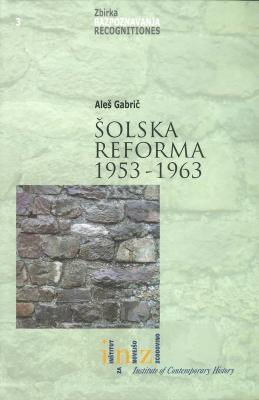Šolska reforma 1953-1963
Keywords:
education, system reform, socialism, politics, Universty, SloveniaSynopsis
After taking power in 1945, the new political regimein Yugoslavia sought to subject the national school system to its ideological and political interests. Before themid 1950’s, it paid more attention to political and economic, rather than educational issues, regarding whicha concept of desired changes had not yet been fully developed. Although some guidelines for the changes inthe school system had already been drawn up, the Yugoslav government refrained from embarking on a comprehensive educational reform.
It decided to take this step in 1953, when the Federal Assembly formed the School Reform Commission.While the goals and requirements of the reform weredefined in Belgrade, the task of the above Commission,headed by Miloš Žanko, was to consolidate the differentproposals. The Slovene members of the Commission– Draga Humek, Vlado Majhen and Franc Kimovec – all supported the proposed changes that suited the politicalinterests of the ruling League of Communist. The progress of the reform was supervised by the Federal Executive Council’s Board of Education, presided by Rodoljub Čolaković.

Published
Print ISSN
License

This work is licensed under a Creative Commons Attribution-NonCommercial-NoDerivatives 4.0 International License.

